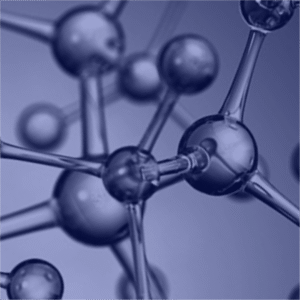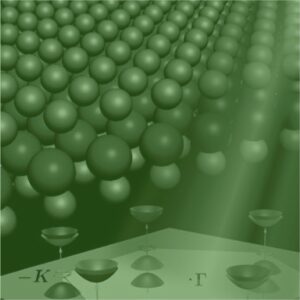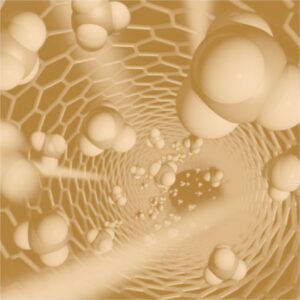💡 Research Topics
Research topics available in the BRIN Research Center for Physics are categorized according to the currently existing research groups, i.e., quantum information & computation, quantum materials, quantum devices, quantum matter theory, quantum simulation, quantum finance & complex systems, non-perturbative physics, theoretical high-energy physics, and experimental high-energy physics.
Quantum Information and Computation

The last three decades have witnessed a fast-emerging field of quantum information and computation exploiting nonclassical aspects of quantum mechanics, such as coherence and entanglement, for developing new schemes of quantum technology. These include but are not limited to quantum sensing, quantum cryptography, quantum computing, and quantum battery. In this research group, we study the characterization and quantification of nonclassicality as a resource for quantum technology, investigate the dynamics of quantum information in complex quantum systems, and search for applications of quantum computers to study and simulate various aspects and properties of quantum systems.
Keywords: Quantum information, quantum computation, teleportation, entanglement, quantum thermodynamics, quantum many-body system, quantum black holes, quantum dynamics, and quantum speed limit.
Quantum Materials
The Quantum Materials group studies functional materials in which quantum effects determine electronic, magnetic, and catalytic properties. Our research spans rare-earth oxides, perovskite manganites, heterojunction photocatalysts, and 2D transition-metal dichalcogenides. We investigate strongly correlated electron systems, superconductivity, magnetoresistance, spin dynamics, quantum confinement, and energy-driven processes such as photocatalysis, piezocatalysis, and tribocatalysis. Advanced characterizations, including μSR, neutron scattering, Raman spectroscopy, synchrotron spectroscopy, and electron microscopy, link fundamental condensed matter physics with applied materials science. Current projects focus on magnetocaloric oxides for energy-efficient cooling, oxide and dichalcogenide heterostructures for sensors, and photocatalytic systems for solar energy conversion and environmental remediation. These efforts aim to uncover new physical mechanisms while guiding the design of materials for next-generation energy, sensing, and quantum technologies.

Quantum Devices

Recent advances in materials engineering, nanofabrication techniques, and characterization tools allow us to explore novel (quantum) phenomena driven by interactions between constituent particles or quasi-particles in condensed matter. In this group, our primary interest is to probe the signature and mechanism of such interactions under various conditions, which help us better design functional materials and quantum devices, hence advancing our current technologies. We are concerned with both materials and devices in emerging fields such as spintronics, superconductivity, photocatalysis, and quantum sensing.
Quantum Matter Theory
We study fundamental excitations such as electrons, spins, photons, phonons, magnons, plasmons, and their interactions with each other in condensed matter systems. By understanding the interactions, we can propose materials for various applications, in particular, for future quantum devices. We employ a wide range of theoretical methods and develop in-house software to calculate the physical properties of materials. With this approach, we can predict novel materials as well as understand available experimental data in the literature.
Keywords: Theoretical condensed matter physics, quantum many-body theory, quantum materials design, strongly-correlated systems, quantum geometry in solids, light-matter interactions, spectroscopy theory.

Quantum Simulation
In this group, we design and predict the properties of quantum materials through computational studies. We use various classical and quantum simulation methods, e.g., classical molecular dynamics, semi-empirical tight-binding methods, and first-principles methods (ab initio molecular dynamics, density functional theory, or Green function theory). The applications encompass a broad range of systems, ranging from catalysts, ion batteries, thermoelectrics, photovoltaics, fuel cells, anti-corrosion, gas sensors, and hydrogen storage. We also study quantum computing for various applications, in particular for materials simulation.

Quantum Finance and Complex Systems

In this group, we focus on leveraging quantum computing for applications in finance and complex systems. Specifically, we implement and develop efficient hybrid quantum-classical algorithms, such as the Variational Quantum Eigensolver (VQE) and the Quantum Approximate Optimization Algorithm (QAOA), with targeted use cases in financial sectors (combinatorial optimization, portfolio diversification, and risk profiling). Beyond financial applications, we also extend the use of hybrid quantum algorithms to problems in quantum chemistry and drug discovery. Furthermore, in our group, we also investigate opinion dynamics models by analyzing various statistical properties on complex networks, such as the emergence of phase transitions and scaling phenomena induced by external influences. This research is conducted both analytically and computationally across a range of model scenarios.
Non-Perturbative Physics

Our research group focuses on phenomena or mathematical methods that cannot be described using perturbation theory, mainly due to the strong interactions in the system, such as quark-gluon plasma in quantum chromodynamics. A particular example in quantum field theory is the existence of solitons, and the most important ones are Bogomol’nyi-Prasad-Sommerfield (BPS) solitons, whose energies are the lowest. One of our members has been developing the BPS Lagrangian method to obtain these BPS solitons. As general relativity is perturbatively non-renormalizable, our group is also interested in alternative methods to quantum gravity, namely string theory and loop quantum gravity.
Theoretical High-Energy Physics

Our research group focuses on the theory and phenomenology of particle physics, with a specific emphasis on elementary particles and their interactions. Our work is centered around the standard model and its extensions, which include areas such as neutrino oscillation, Higgs physics, B-Physics, dark matter, quantum field theory, and grand unified theory.
Experimental High-Energy Physics
We research experimental high-energy physics and, recently, we have also branched out into applications of high-energy particle detection technology, known as muography. At an extremely high temperature, close to the temperature an instant after the big bang, protons and neutrons in atomic nuclei will break into their constituents of quarks and gluons. Our group use experimental facilities at CERN, Geneva, Switzerland, and computing facilities at BRIN to probe and study the behavior of quarks and gluons at this extremely high temperature. Our particular interest is the physics of heavy quarks (b and charm) probed by producing corresponding b- and charmed mesons. In muography, we are exploring potential muography applications in geoscience and non-destructive testing.
Keywords: Quark gluon plasma, quark matter, Hagedorn temperature, relativistic heavy ion collisions, perfect fluid, charm meson, D meson, heavy flavour, jet, hadronization, and particle detector.
